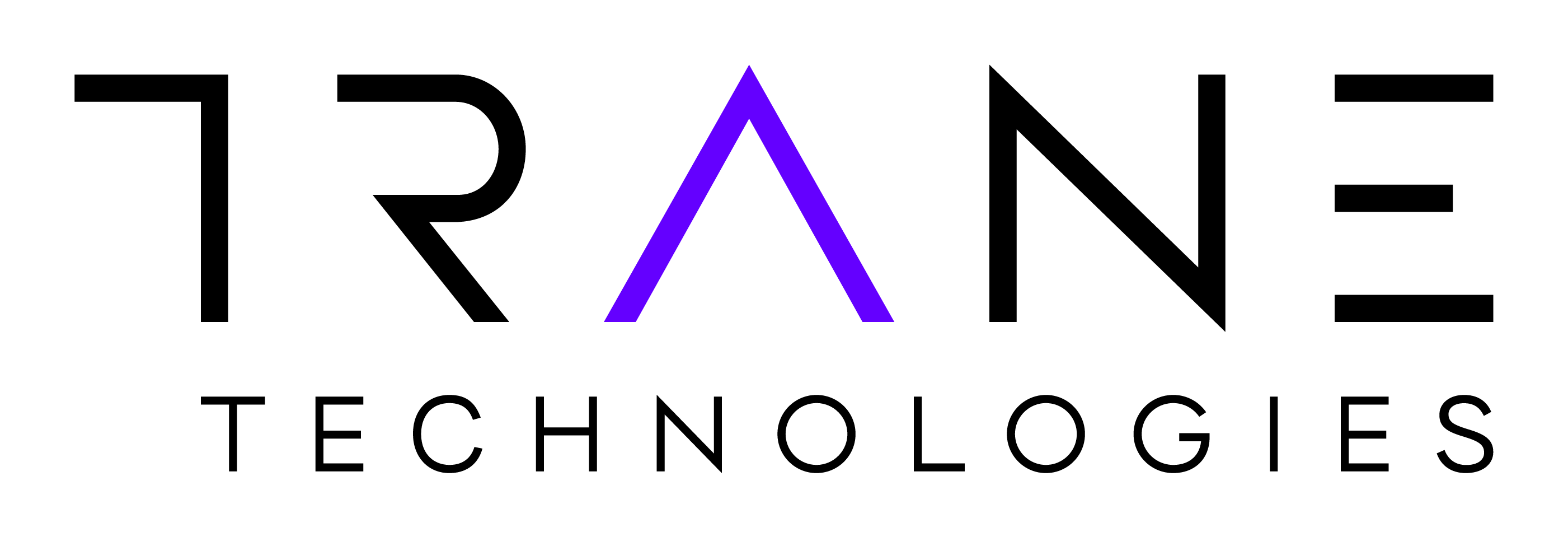Leading by Example: Accelerating Sustainable Operations in Galway, Ireland
We’re leading by example through responsible operations, reimagining our systems and taking action to have a restorative impact on the environment.
Project At-a-Glance:
The opportunity: Accelerate the path toward operational sustainability at Thermo King Galway through a multi-faceted carbon reduction strategy across the manufacturing plant, significantly reducing Scope 1 and 2 carbon emissions and moving Trane Technologies closer to its 2030 Sustainability Commitment of carbon neutral operations.
The solutions: Replacing diesel fuel with HVO biodiesel; adopting reusable dollies and crates to further enhance zero waste to landfill commitment; innovating a state-of-the-art carbon-neutral Advancer production line; enhancing roof insulation; and installing 2,000 photovoltaic panels for renewable energy.
Sustainability outcomes: All metrics are based on prior year (2022) comparisons unless otherwise stated.
- 29% decrease in the facilities carbon emissions (CO2e)
- 99% reduction of Scope 1 diesel fuel carbon emissions on multiple plant lines by transitioning to HVO biodiesel
- 33% reduction in non-hazardous waste generation
- Anticipated generation of 1,000,000 kWh of green electricity from an onsite photovoltaic system; and saving €300k in site annual energy and maintenance costs
- Annual savings of €56k per year via LED lighting
- Zero waste to landfill since 2014
Accelerating a legacy of sustainability
Over nine years ago, our Thermo King manufacturing facility in Galway, Ireland became the first Trane Technologies site to achieve zero waste-to-landfill status. In the years since, the team has continued to innovate how we manufacture solutions for the cold chain while leading the way in sustainable operations.
In 2020, motivated by Trane Technologies’ 2030 Gigaton Challenge to reduce customers’ carbon emissions from use of products, Thermo King unveiled a new state-of-the-art Advancer A-series, a revolutionary approach to refrigerated transport that helps reduce the impact of the cold chain.
At the same time, the Galway team simultaneously revolutionized the production line on which the new Advancer A-series would be built, incorporating innovative technologies and practices like automation, reusable packaging, robotics, renewable energy sources and electrification into the manufacturing process. In 2021, the Advancer line became the first assembly line in the sector to be certified carbon neutral.
“The Advancer line is the future of the factory,” says Michael Stratford, Thermo King Operations Leader for Ireland. “It’s also the start of our electrical architecture and electrical journey in our operations.”
Sustainability across the board
Prioritizing sustainability in operations means Galway’s cross-functional teams are constantly monitoring and assessing energy efficiency, water, refrigerant and waste, as well as looking for new reduction strategies. Previous measures have included LED lighting, rainwater harvesting and adding greenfield areas and EV charging.
And in recent years, the company has accelerated its path to further reduce carbon emissions associated with operations, leading the way with bigger, groundbreaking projects.
Working with the design, procurement and waste-monitoring teams on site, the facility now prioritizes the use of returnable, stackable crates and the development of parts and dollies that no longer require single-use plastic. This strategy enhances Galway’s zero waste to landfill commitment by also significantly reducing the annual mass of recyclable materials. Since 2018, the site’s production of recyclable waste has been reduced by 60% - another big step in advancing the sites operating zero waste to landfill achievement.
Onsite generators now produce oxygen and nitrogen for soldering and brazing for production units, saving nearly $37K annually in gas transportation costs. Replacing the use of propane with bio propane for these processes has delivered over 90% carbon emissions reduction.
And one of the most impactful projects to date has been the installation of a 50,000-liter tank storing Hydrotreated Vegetable Oil (HVO). By replacing the diesel used on production lines with HVO, the site has successfully reduced Scope 1 fossil fuel carbon emissions across three manufacturing lines by 99%. HVO carbon is categorized as biogenic and identified as a renewable fuel with a carbon neutral designation.
Next big steps in reductions
Additional investments are taking another big step in reducing the site’s carbon footprint.
With a 50-year-old single skin roof, the 170,000 sq ft factory building was losing heat, resulting in higher energy demands. The team saw an opportunity to reduce wasted heat while also shifting to a renewable energy source, replacing the roof’s thin top-skin with an insulated panel and also installing over 2,000 photovoltaic solar panels. Once fully installed, the solar panels will produce approximately 1,000,000 kWh of green electricity and improve the site’s resiliency for energy supply. While the site has purchased and used electricity generated 100 percent from renewable sources since 2020, the addition of the photovoltaic (PV) system will reduce the quantity of renewable electricity purchased. The PV system will also save the site over €300k in annual energy and maintenance costs.
“Opportunities to improve are still out there,” says David Honan, Environmental Health & Safety (EHS) Leader EMEA and Galway EHS Site Leader. One such priority is refrigerant. The Galway facility uses approximately 10,000 tons of refrigerant each month to charge into finished goods manufactured for customers. To significantly reduce Scope 1 emissions associated with refrigerant leaks, the site installed world class refrigerant storage, charging and monitoring equipment and shifted to a new refrigerant with a lower Global Warming Potential (GWP).
Sustainability beyond the factory
The Galway team also recognizes that sustainability means looking after the long-term well-being of people, both internally and in the surrounding community.
When a local school was looking for help to create a dedicated space for Autistic Spectrum Disorder students, the team invested in the building of a sensory room. And volunteers that make up the local Purple Team for the site, actively work with area students, supporting science fairs, robotics competitions, and partnerships that encourage young kids to pursue STEM careers.
“We're on a good flight path in terms of sustainability,” affirms Michael Stratford. “We were on it for quite some time. We're accelerating it now.”

